
Into The Fire
(Under Fire, Volume 1)
by Kim Vandel
Introduction
Finalist — 2015 Realm Makers Genre Award in both Debut and Young Adult categories
Chosen by God. Hoping thereâs a way out.
When Kate meets Nathan, he reveals the existence of the Guardians—men and women with God-given superpowers. But not all Guardians honor their calling to protect innocent lives. Some choose to prey on the innocent instead. Nathanâs touch leaves Kate with a flame-shaped mark on her wrist, the sign sheâs been chosen as a Guardian. Suddenly she finds herself in the middle of a conflict thatâs been burning between the Guardians and their Fallen brethren for over a thousand years. While Kate waits for her dormant ability to emerge, she has to endure combat training with Hassan, an ex-terrorist who enjoys taking shots at her already low self-esteem. He also draws out the side of her that wants to fight back, and if Kate can find the courage to believe God is offering the life sheâs always wanted, Hassan might just be the one to help her start living it.
Excerpt
I heaved a sigh as I closed my calculus book. It was hopeless. Within the first two weeks of fall quarter, I was going to destroy my dream of medical school.
I shoved the book into my backpack and joined the rest of the students fleeing the auditorium. On the steps outside, I paused long enough to check my phone. Dad still hadn’t returned my calls but no surprise there. I hadn’t really thought he would.
Heat flared on my wrist as I returned the phone to my hoodie’s pocket, and I fought the temptation to dig in with y fingernails. That spot on the inside of my wrist had been burning and itching all morning, and now it was red because I couldn’t stop scratching. Like I needed one more thing to deal with.
 I pulled my hood up to provide some cover from the sprinkle of raindrops and headed for one of the university of Washington’s many libraries. So far, Suzzallo was my favorite and not just because there was caffeine available in the lobby. With its Gothic arches and stained glass windows, Suzzallo looked like it was part of the Hogwarts campus.
I pulled my hood up to provide some cover from the sprinkle of raindrops and headed for one of the university of Washington’s many libraries. So far, Suzzallo was my favorite and not just because there was caffeine available in the lobby. With its Gothic arches and stained glass windows, Suzzallo looked like it was part of the Hogwarts campus.
A dozen different conversations echoed against the stone walls of the lobby as I entered, and I navigated traffic to reach the cafĂ© where the hiss of steaming milk replace the echo of voices. Thankfully, the line was short this morning. Only one person stood between me and the comfort of caffeine. The guy was a walking stereotype of the university professor—a goatee and a tweed jacket with leather patches on the elbows. He probably had a pipe or pair of wire-rimmed glasses tucked in one of his pockets.
He handed his money to the girl behind the counter, exposing a tattoo on his wrist, and I tilted my head to get a look at the design. Three small, red-orange flames fit together to form a larger one. Maybe not such a stereotype after all.
The professor thanked the girl, dumped his change in the tip jar, and stepped away from the counter. Right onto my toes. I stumbled back, and he swung around to catch me. When his hand touched my arm, heat shot down to my wrist. I tugged my arm loose, and the heat faded.
“Sorry about that. Are you all right?”
“I’m fine.” I rubbed at my wrist. He must have hit a nerve or something.
“Are you sure?”
“Yeah, don’t worry about it. Happens all the time.” It was the truth, sadly enough. I should have invested in a pair of steel-toed All Stars years ago.
Regret washed across his features. “I really am sorry. See you later.”
I frowned as he moved off toward the barista. Yeah, he’d stepped on my toes, but it wasn’t like he’d ruined my whole day. Then again, at least he’d apologized. That was more than most people did.
As I stepped up to the counter, I reached into the pocket of my jeans for a ten-dollar bill. My last ten dollars. The thought was so depressing that I ordered a venti mocha with extra whip. If I was going down, I was going in a supernova of glory.
While I waited for the mocha, I pulled my hood back and scanned the crowd. The professor sat by the door reading on his phone between sips. The guy at the table closest to me had fallen asleep on top of his textbook despite the energy drink sitting on the table. His friend was plugged in to a laptop with a pair of ear buds, probably trying to shut out the drama coming from the girl at the next table over. Based on her half of the phone conversation, there was an epic breakup in progress.
As she threatened to post incriminating pictures online, I grabbed my mocha. When I lifted the cup to drink, fire pricked my wrist again. I gritted my teeth against the sting, switched the mocha to my left hand, and turned from the counter.
A new group of students entered the lobby, and I promptly choked on my second sip. I did a quick check to make sure I hadn’t spilled down the front of my hoodie. It was black, but still. Wet showed up no matter what. The hoodie was clean, but I couldn’t do anything about my hair. Between the rain and my hood, it was beyond help. I attempted to smooth it down, but I could feel strands of hair flying up around my head like I’d been playing with a Van de Graaff generator.
Three girls—all of them blondes with fake-n-bake tans—accompanied the one guy. Laughter preceded them into the cafĂ©, and I stood paralyzed, half afraid they would recognize me and half afraid they wouldn’t. Well, that he would or wouldn’t, but why—why—did he have to show up on a day when it looked like I’d been using a balloon on my hair instead of a brush? I voted for not recognizing today.
Not that it would make any difference if Rob Peterson recognized me. I wasn’t his type. My skin was too fair and my hair too dark. But I did enjoy staring at him. You know, admiring God’s handiwork.
One of the girls spotted me and came over with a smile that revealed a lot of very white teeth. Jen and I had attended Northshore Christian Church for years, and we’d both graduated from Redmond High School last June. She was one of those people you really wanted to hate but couldn’t because she was so nice. She didn’t rub in the fact that she was perfect because she really didn’t think she was.
“Hey, Kate. How are you?”
I smiled back without revealing quite so many teeth. “I’m good.”
“How’s school going for you?”
“Okay. Just trying to stay on top of everything.”
“I know, right? I only have three classes this quarter, but I have no idea how I’ll get everything done.”
Rob turned in our direction, and I shrank back.
“Jen, are you going to order something?” he said.
“Yeah, I’m coming. You guys remember Kate, don’t you? She goes to Northshore too.”
I got a semi-genuine wave from Rob and the other two girls and waved back. Then I wished I hadn’t. Hopefully no one noticed I’d discovered a new skin disease.
“Please don’t keep them waiting because of me,” I said.
“Well, it’s good to see you. We should do something together. What about that Chase Thomason concert? It’s coming up in a couple of weeks, and a bunch of us are going. You should come with us. It’ll be fun.”
An image of Rob with his blonde, bronzed groupies filled my head, and I tried to picture myself with them. I stood out and not in a good way. Then again, going in a group with Rob was better than not going with Rob at all, right? And odds were that I would look better for the concert than I did this morning.
“Um, okay. That would be good I guess.”
“Great! Get your ticket, and I’ll let you know what time we’re meeting up. Maybe we’ll go get something to eat after the concert.” She waved and moved off toward her friends.
“See you Sunday.”
I waved goodbye then took a moment to envision a better-dressed, non-Van de Graaffed version of myself at the concert. I could find something better than a hoodie in my closet, something Rob would . . . wait, she did say Rob was going, didn’t she? Or did I just assume he would be part of the group?
– – – – –
The Author
 Kim Vandel grew up on a steady diet of Saturday morning Justice League cartoons and Sunday morning Bible stories. It was inevitable that the two would someday merge into the concept of Guardiansâmen and women with God-given âsuperpowers.â
Kim Vandel grew up on a steady diet of Saturday morning Justice League cartoons and Sunday morning Bible stories. It was inevitable that the two would someday merge into the concept of Guardiansâmen and women with God-given âsuperpowers.â
She worked in the field of environmental science before staying home to be a full-time mom and writer, and she now uses her science background to bring the speculative element of her fiction to life.
Kim lives in the often gloomy Seattle suburbs, which suits her and her writing style just fine. When sheâs not reading or writing YA fiction (or tending to Guardian business), you can find her hanging out on social media. Learn more about Kim at her website: kimvandel.com.
 Is magic “real”? I mean, can people really perform magical acts?
Is magic “real”? I mean, can people really perform magical acts? A third example is in the New Testament. “Now there was a certain man named Simon, who formerly was practicing magic in the city, and astonishing the people of Samaria, claiming to be someone great; and they all, from smallest to greatest, were giving attention to him, saying, ‘This man is what is called the Great Power of God.’ And they were giving him attention because he had for a long time astonished them with his magic arts.” (Acts 8:9-11 NASB).
A third example is in the New Testament. “Now there was a certain man named Simon, who formerly was practicing magic in the city, and astonishing the people of Samaria, claiming to be someone great; and they all, from smallest to greatest, were giving attention to him, saying, ‘This man is what is called the Great Power of God.’ And they were giving him attention because he had for a long time astonished them with his magic arts.” (Acts 8:9-11 NASB). Think about it. Who hung the stars in space? Who sees that it all continues to work? It’s not as if God established a set of natural laws that has gotten away from Him, that He no longer can control. Gravity exists because God created it and maintains it. As He did and does, photosynthesis. And the Pythagorean theorem, or the second law of thermodynamics. Or the law of sin and death.
Think about it. Who hung the stars in space? Who sees that it all continues to work? It’s not as if God established a set of natural laws that has gotten away from Him, that He no longer can control. Gravity exists because God created it and maintains it. As He did and does, photosynthesis. And the Pythagorean theorem, or the second law of thermodynamics. Or the law of sin and death.


































 I pulled my hood up to provide some cover from the sprinkle of raindrops and headed for one of the university of Washington’s many libraries. So far, Suzzallo was my favorite and not just because there was caffeine available in the lobby. With its Gothic arches and stained glass windows, Suzzallo looked like it was part of the Hogwarts campus.
I pulled my hood up to provide some cover from the sprinkle of raindrops and headed for one of the university of Washington’s many libraries. So far, Suzzallo was my favorite and not just because there was caffeine available in the lobby. With its Gothic arches and stained glass windows, Suzzallo looked like it was part of the Hogwarts campus. Kim Vandel grew up on a steady diet of Saturday morning Justice League cartoons and Sunday morning Bible stories. It was inevitable that the two would someday merge into the concept of Guardiansâmen and women with God-given âsuperpowers.â
Kim Vandel grew up on a steady diet of Saturday morning Justice League cartoons and Sunday morning Bible stories. It was inevitable that the two would someday merge into the concept of Guardiansâmen and women with God-given âsuperpowers.â
 them, but everybody does. There are titles that evoke a strong, instinctive reaction in the prospective reader, a reaction best summed up by the words, âAh, no.â There are titles that are too pretentious, titles that are too long, titles that try too hard, titles that make you laugh for exactly the wrong reason. Most of all, there are titles that are almost overwhelmingly blah.
them, but everybody does. There are titles that evoke a strong, instinctive reaction in the prospective reader, a reaction best summed up by the words, âAh, no.â There are titles that are too pretentious, titles that are too long, titles that try too hard, titles that make you laugh for exactly the wrong reason. Most of all, there are titles that are almost overwhelmingly blah.

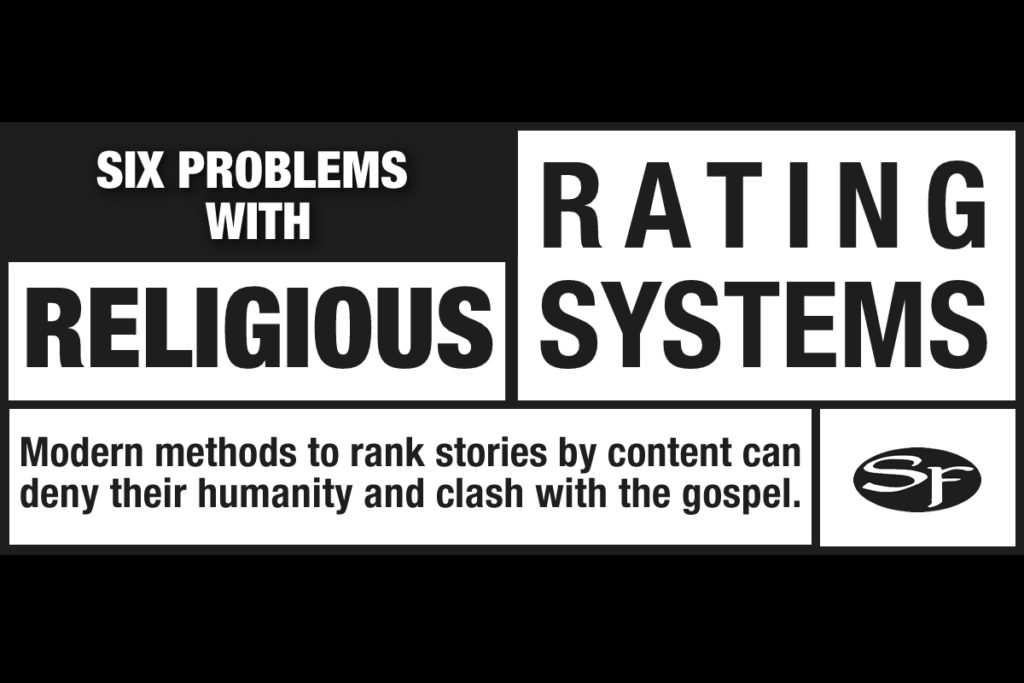
 But we must be careful not to see our own classification-impulses as morally beneficial, or expected of all other Christians. I think classification-people make this jump when we enjoy a story and try to find a âpraise languageâ (sort of like a âlove languageâ) to express our enjoyment. For example, I might read Marc Schooleyâs novel
But we must be careful not to see our own classification-impulses as morally beneficial, or expected of all other Christians. I think classification-people make this jump when we enjoy a story and try to find a âpraise languageâ (sort of like a âlove languageâ) to express our enjoyment. For example, I might read Marc Schooleyâs novel 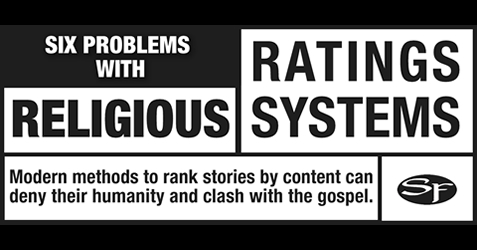
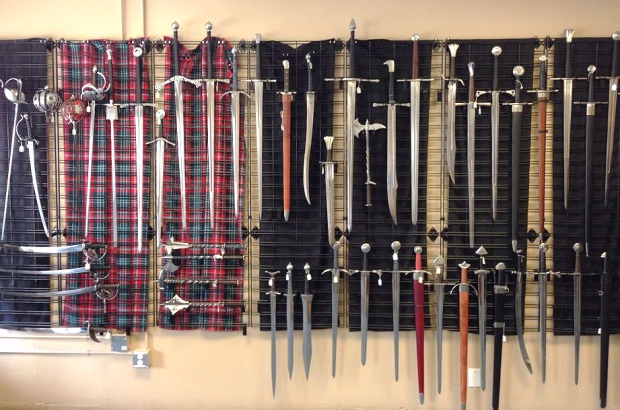
 Pick up any fantasy book, modern or classic, and it will likely be bristling with weapons. In ancient times, warfare was a normal part of life, and since every battle is a thrilling story (for the survivors, at least), this is what dominates history books and tall tales. Could you imagine The Lord of the Rings without Sting or Narsil? The movies brought the weapons of Middle Earth to life and made lots of money for many fantasy swordsmiths. Eastern weapons like katanas frequently appear in books and movies, but I’m sure most fantasy fans would agree that the European armaments are a lot cooler.
Pick up any fantasy book, modern or classic, and it will likely be bristling with weapons. In ancient times, warfare was a normal part of life, and since every battle is a thrilling story (for the survivors, at least), this is what dominates history books and tall tales. Could you imagine The Lord of the Rings without Sting or Narsil? The movies brought the weapons of Middle Earth to life and made lots of money for many fantasy swordsmiths. Eastern weapons like katanas frequently appear in books and movies, but I’m sure most fantasy fans would agree that the European armaments are a lot cooler.

 By their nature, stories (and when I say that, Iâm assuming theyâre actually decent, not mindless drivel or numbing propaganda) have an inherent power to influence us. Our thoughts, views, opinions on social matters, beliefs, and any number of other pieces that make up the puzzle of life.
By their nature, stories (and when I say that, Iâm assuming theyâre actually decent, not mindless drivel or numbing propaganda) have an inherent power to influence us. Our thoughts, views, opinions on social matters, beliefs, and any number of other pieces that make up the puzzle of life. Community is part of being human. Weâre made for community, and by nature, we tend to separate into groups, spending time with people whose interests are similar to ours.
Community is part of being human. Weâre made for community, and by nature, we tend to separate into groups, spending time with people whose interests are similar to ours.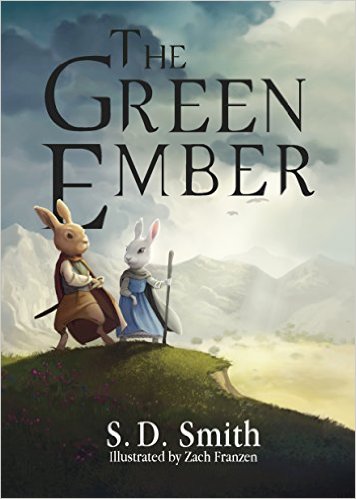
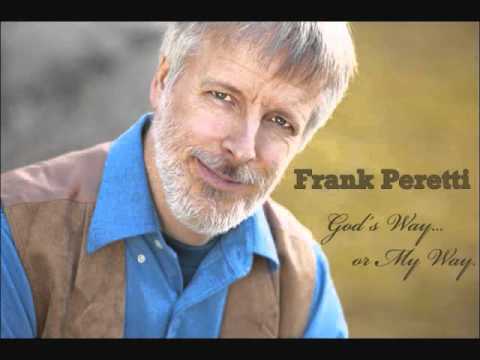 Every once in a while a new writer emerges who seems to capture the imagination of a large number of people. I don’t know why that is. Perhaps they have an existing platform like singer/songwriter Andrew Peterson. Maybe they have a large circle of influence from their day job such as Patrick Carr. Maybe their writing wins fans, like Jill Williamson’s. Maybe they’ve garnered some fame from some other exploit such as Tosca Lee.
Every once in a while a new writer emerges who seems to capture the imagination of a large number of people. I don’t know why that is. Perhaps they have an existing platform like singer/songwriter Andrew Peterson. Maybe they have a large circle of influence from their day job such as Patrick Carr. Maybe their writing wins fans, like Jill Williamson’s. Maybe they’ve garnered some fame from some other exploit such as Tosca Lee.  But inevitably, there are good players that go undrafted. Yet some manage to make it in the pros anyway. The Denver Broncos are notorious for undrafted players who end up starting for them and even making the Pro Bowl, like cornerback Chris Harris has done. So what’s their secret? How do they present themselves and get noticed?
But inevitably, there are good players that go undrafted. Yet some manage to make it in the pros anyway. The Denver Broncos are notorious for undrafted players who end up starting for them and even making the Pro Bowl, like cornerback Chris Harris has done. So what’s their secret? How do they present themselves and get noticed?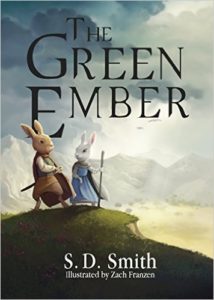
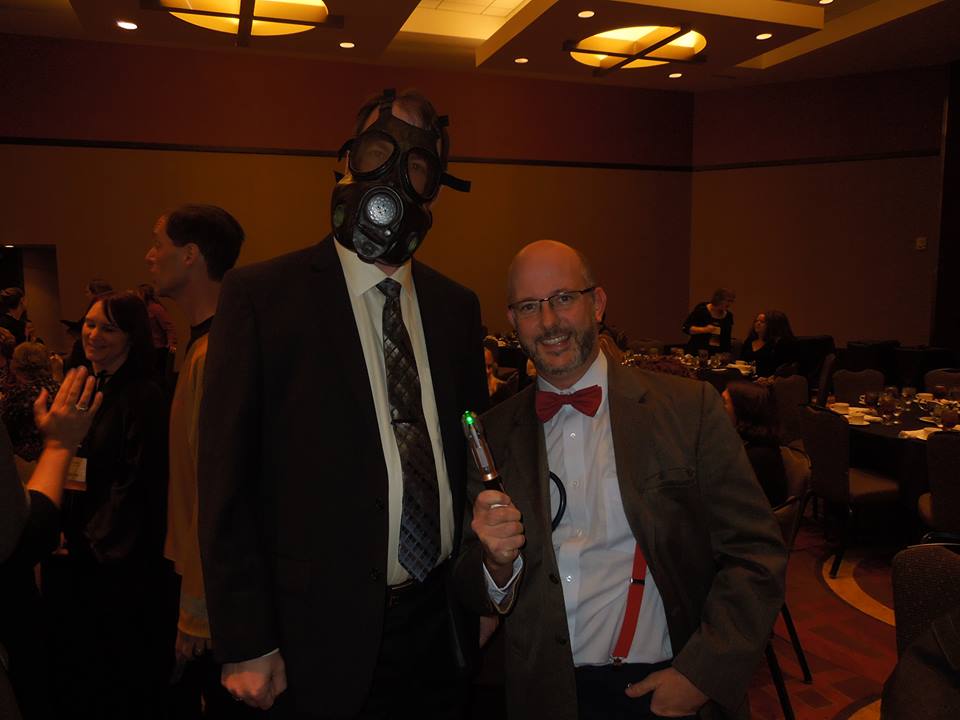

 John W. Otte, a former columnist here at Spec Faith, grew up in Columbia Heights, a suburb of Minneapolis, Minnesota. When he was younger, he dreamed of being a superhero, fueled by reading collections of Superman and Batman comics. Instead, he attended college at Concordia University in St. Paul, Minnesota, where he majored in theatre. He graduated summa cum laude in 1996 and then attended Concordia Seminary in St. Louis, Missouri, where he received his Master of Divinity in 2000. He now serves as a pastor in Blue Springs, Missouri, where he lives with his wife and two sons.
John W. Otte, a former columnist here at Spec Faith, grew up in Columbia Heights, a suburb of Minneapolis, Minnesota. When he was younger, he dreamed of being a superhero, fueled by reading collections of Superman and Batman comics. Instead, he attended college at Concordia University in St. Paul, Minnesota, where he majored in theatre. He graduated summa cum laude in 1996 and then attended Concordia Seminary in St. Louis, Missouri, where he received his Master of Divinity in 2000. He now serves as a pastor in Blue Springs, Missouri, where he lives with his wife and two sons.


